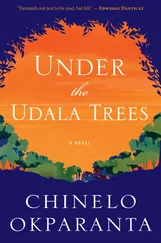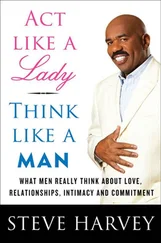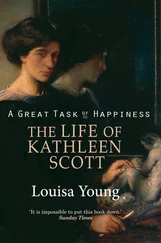Soon we were walking out the door.
Out in the courtyard little Christophine was chasing her big sister Lexine, trying to get the ball that Lexine held in her hands. Romain and Stefon sat on the steps that led down to the courtyard, exchanging cards and candy bars.
Shruti stood up from where she was sitting on the railing of the steps. We were the same age, Shruti and I, and in the same homeroom — Mrs Stephen’s class. Every afternoon, she waited for me. We played together until dinner time. That was the way it was those days. A building of all international students, Indians, Africans, Caribbean mostly. We’d all come out in the late afternoons and we’d play until sunset, until our mothers or our fathers came to call us in.
Shruti followed Mama and me. ‘When will you be back?’ she asked. She walked alongside us, her dupatta carelessly strewn across her body, one end sweeping the floor. ‘Will you be back soon?’
‘Maybe,’ Mama answered.
‘Maybe,’ I echoed.
At the tip of the road, that junction where Buswell Street intersected Beacon Street, Mama stopped, and I stopped, too, and we stood watching the cars pass by, waiting to cross. Shruti stood with us, a disappointed look on her face.
‘You should get back now,’ Mama said, not turning to look at Shruti. ‘You should get back before your mother starts to worry.’
Of course, Shruti obeyed.
We crossed the street then, continued to walk, past Tony’s Pizza shop, up to and past Kenmore Square, where Emmanuel College and Simmons College and all the other colleges formed their little community. We trekked on, side by side, Mama holding my hand. All of it we did in silence.
It was Mama who finally broke the silence. She began slowly and softly, marvelling at how wonderful it was that there were things like churches, food banks and nice people who worked in both. ‘Everything so organized.’
I listened.
‘Who would have known that there were places where people could go to have these types of problems solved?’ she asked. Places that were not churches, not food banks, not hospitals. But they were actually a sort of hospital, she said. Then, ‘Ah, what a country!’ What a country it was that had exactly what a person needed, if only the person knew enough to ask. She hadn’t even known that she could ask, she said. But somehow God had put it in her mind. And thank Heaven she did. Because things would surely get better from here. It would not be like in Nigeria where everyone had insisted that it was her duty to remain with Papa.
We stopped by the tram and got on. Mama held my hand the entire ride. It might have been a thing she did only to steady herself, because her hand shook each time that she loosened her grasp on mine.
We got off at Copley Station. More walking. Past the public library, past Boylston Street. Past block after block of houses. We stopped when we came to a street of row houses.
Mama pulled out the card, the one the woman had given to her. I was surprised by its relative crispness, how even with all this passage of time, it appeared well preserved, not at all as I would have expected, for having been buried so long inside of Mama’s bag.
I stared at it. Mama stared at it too, for a few seconds, as if surprised by it the way that I was.
The house at which we arrived had a wooden red door and a wooden plate posted at Mama’s eye level. Painted on the plate was a pink triangle without a base, and underneath the triangle, the words FRESH START.
As we stood in front of the door, Mama turned to me, rubbed her hand on my cheeks, as if wiping off any dirt that had accrued from the trip. She fussed a bit with my hair, tucking the straightened strands into place. She fussed with the skirt of my dress, straightened it out. Perhaps wrinkles had formed during the trip, and if so, she made sure to remove all traces of them. Only then did she knock.
A woman opened the door, pretty, with pale skin and dark brown hair that came down to her shoulders. She wore an expensive-looking blouse, something shiny, like silk. Her skirt came down just below her knees, perfectly ironed, perfectly tailored, nothing like Mama’s old, fraying dress.
She invited us inside and offered us seats at her desk.
The room was wide, with posters on the walls, of mothers and children, of families with smiling faces. There were other types of posters, too, of purple ribbons and bold letters that read: STOP DOMESTIC VIOLENCE.
I exhaled — one of those lengthy exhales that seemed to tumble on and on, whose end you were eager to reach, because somehow it held the promise of something good. I exhaled, and I settled comfortably into my seat.
Soft music came from somewhere. There were also sounds from above, of feet and of children’s hushed voices.
On the main floor, where we were, there were two other women like Mama, each one sitting at one of the three desks in the room.
One woman had two sons; they appeared to be twins, perhaps about three or four years old. They gathered around her lap, each one resting his head on a thigh.
At the other desk was a woman with her daughter. She sat filling out, I suppose, the same forms Mama was filling out for us. The woman’s daughter sat quietly, her hair in pigtails.
A widescreen television sat in the corner of the room, muted, alternating between news and weather reports. No broken antenna sticking up above it, not like our television, its antenna having been chopped off by Papa in one of his fits of anger.
The chairs were nice and cushioned — nothing new, but without the holes that ours had at home. And no broken legs, like some of ours had come to have after so many instances of Papa throwing them into the wall.
It was a good place, I thought. Fancy television, nice furnishings, mostly quiet. No Papa to worry about.
The woman helping Mama had been speaking all the while, but I had been too busy observing my surroundings to hear what exactly she was saying. Now, I listened closely, and I heard. She had handed over a clipboard to Mama. On the clipboard was a form. She was instructing Mama on which blanks to fill on the form.
Mama was still filling out the forms when another woman came down the staircase from upstairs.
She was the same woman from the night at the bus stop. The same woman from our visits to the food bank at our church on Buswell Street.
She patted me on the head. She looked at Mama, told her how happy she was that we had come. Her eyes were soft, a little tired-looking.
‘You’ll be safe here,’ she said. It could have been to me or to Mama.
Mama nodded, then continued to fill out the forms.
The woman walked across to the other two desks, appearing to check in with the mothers and children. She checked in also with the counsellors at the desks before turning around and going back upstairs.
We waited. Our counsellor made some calls. We waited some more. Intermittently, Mama rubbed my shoulders, told me how all this was really for the best. It was not as if she needed to convince me of it. I had begun imagining evenings at the place, imagining that those noises I was hearing upstairs were voices of children my age. After five or six o’clock, when the counsellors went home, I imagined that all the kids came down the stairs, like we did in our Buswell Street apartment building, all the children gathering together in the hours before dinner. Here, we’d gather around that widescreen television and watch our choice of movies.
I was thinking all this as the woman from the bus stop approached us again. She stood by Mama’s side, shaking her head from side to side. At first she did not say a thing.
‘What?’ Mama asked, finally.
Our counsellor stood leaning on her desk, just watching, her eyes going between Mama and the woman.
Читать дальше












